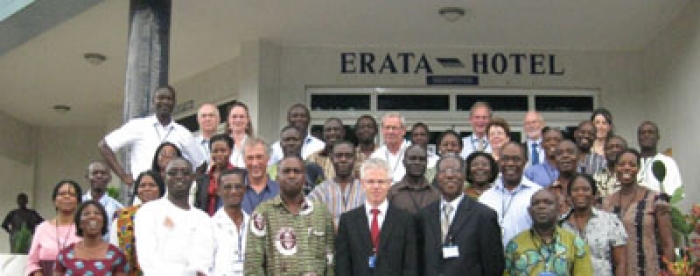News
Our stories ... ...

Ghana - 01 January, 2010
The EU FLEGT Action Programme aims to combat illegal logging and its associated trade. Ghana was the first country to formulate a Voluntary Partnership Agreement with the EU for contributing to the FLEGT objectives. It is envisaged that improved legal timber trade will also stimulate good governance and poverty alleviation.
However, such co-benefits are not automatic. For instance, the law is often incompatible with small-scale forest activities, and these social practices are then considered illegal. The question of how best to integrate legality and livelihood concerns in timber production forms the basis of the research project,‘Illegal or Incompatible? (IoI): Managing the consequences of timber legality standards on local livelihoods.’ The IoI project assesses how the implementation of the Voluntary Partnership Agreement (VPA) between Ghana and the European Union (EU) will impact on the livelihoods of forest dependent people, and searches for governance mechanisms to mitigate any adverse impacts.
On October 8&9, 2009 TBI Ghana organised a workshop on the IoI project in Accra, Ghana on the theme, ‘Social safeguards in the Ghana-EU VPA: Jointly developing a research and development agenda for improved forest governance’. The objective was to facilitate information exchange and dialogue among forest stakeholders on the possible impacts of VPA on livelihoods. About forty national and international participants shared views on possible impacts of VPA on local livelihoods and possible mitigation measures. These participants were drawn from research institutions, academia, policy institutions, development partners, timber industry, civil society and the Forestry Commission.
The workshop did more than facilitating information exchange amongst stakeholders. Four key messages directed at policy makers both in Ghana and the EU also resulted. The following are summary of the key messages to policy makers:
These policy options will be communicated to the Government of Ghana and the EU.